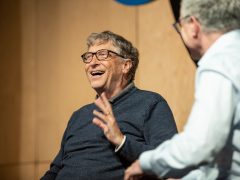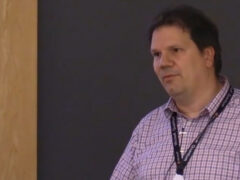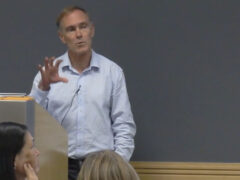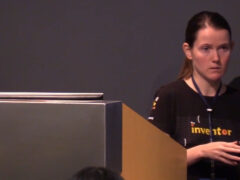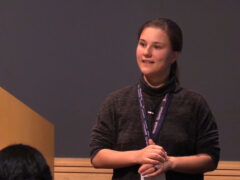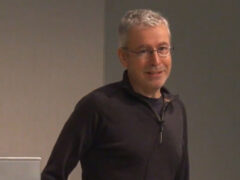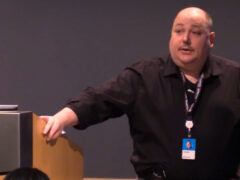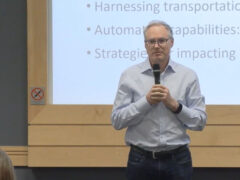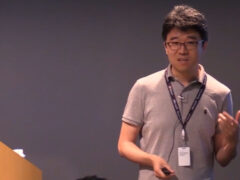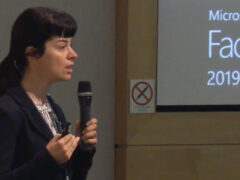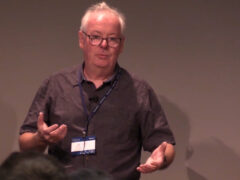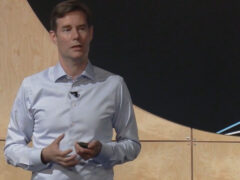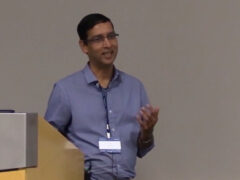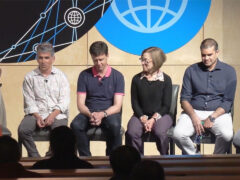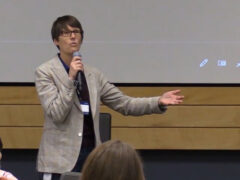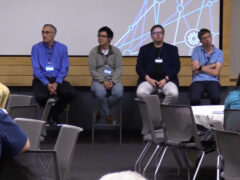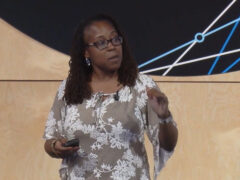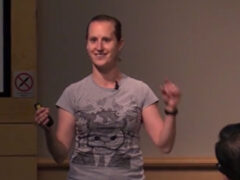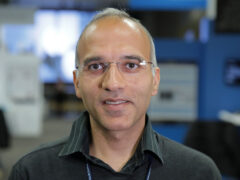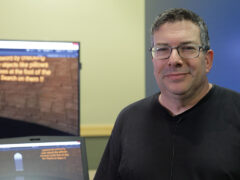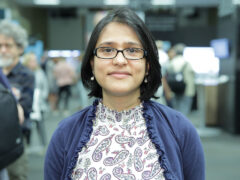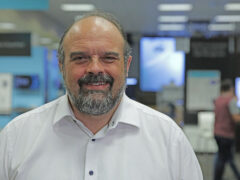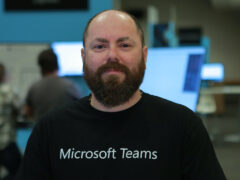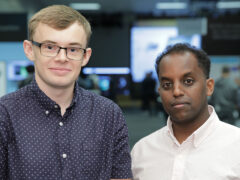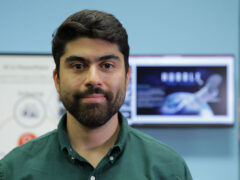Approaching the end of Moore’s Law: time to reinvent the system stack? Morning Sessions II
- Kushagra Vaid, Eric S. Chung, Pat O'Connor, and Mohammed Shoaib | Microsoft, MSR Technologies, Silicon Development, Microsoft Devices division, MSR Redmond
Speaker Details
Eric S. Chung is a Researcher in the Microsoft Research Technologies (MSR-T) lab at Redmond. Eric is a member of the Catapult team and is interested in prototyping and productively harnessing novel hardware systems that incorporate specialized and reconfigurable hardware such as FPGAs. Eric holds a PhD from Carnegie Mellon University (2011) and a BS in EECS from UC Berkeley. Eric has had over 8 years of experience developing with Bluespec in numerous academic and commercial projects, including several processor designs (UltraSPARC, ARMv5), a cache coherency engine for distributed shared memory, and numerous FPGA-based accelerators.
Pat O’Connor is a Partner, Director of Engineering in the Silicon Development group in Devices Division, responsible for hardware and software development of sensors and custom silicon in Microsoft’s Natural User Interface platforms, such as Kinect. Prior to joining Microsoft, Pat was VP of Engineering at Canesta Inc., a pioneer in the area of Time Of Flight 3D Image Sensors, and held previous engineering positions at Parthus Technologies, Aureal Semiconductor, Rockwell International and Analog Devices. Pat holds a BSc in Electrical Engineering from Trinity College, Dublin.
Mohammed Shoaib is a Researcher in the Sensing and Energy Research Group at Microsoft Research, Redmond. His work focuses on the VLSI design of machine-learning and signal-processing systems for low-power sensing applications. In the recent decade, machine-learning research has progressed faster than ever enabling analytics on a wide-variety of data. This has created a push towards the use of learning algorithms even in the smallest of devices, including wearables. One the other hand, however, these devices are also starting to face stricter energy and performance constraints. Thus, enabling hardware support for learning algorithms on energy-constrained devices is a deep and complex area of research, especially given the myriad of technologies, architectural/algorithmic options, and performance trade-offs. Currently, Shoaib is working on enabling vision algorithms that employ machine learning on wearable devices. In the past, he has received the Ph.D. and MA degrees in Electrical Engineering from Princeton University in 2013 and 2010, respectively. He has also received the B.Tech and M.Tech dual degree in Electrical Engineering from IIT Madras in 2008. He has received Ph.D. fellowships from Princeton University and Qualcomm Corporate Research in 2008 and 2010, respectively. He has also received academic awards such as the Roberto-Padovani scholarship from Qualcomm in 2011, the Gordon Wu Prize for excellence from Princeton University in 2012, and Harold W. Dodds Honorific Fellowship from Princeton University in 2012. He was also a graduate fellow of the McGraw Center for Teaching and Learning from 2012-2013. He is a member of the IEEE and the ACM.
-
-
Eric Chung
Partner Group Engineering Manager | Azure
-
Jeff Running
-
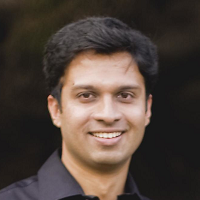
Shuayb Zarar
Principal Applied Scientist Manager
-
-
Series: Microsoft Research Faculty Summit
-
-
-
Cars, Computing and the Future of Work: Specific topics of mutual interest
- Linda Boyle,
- Ed Doran,
- John Lee
-
-
-
Crowd, Cloud and the Future of Work: Updates from human AI computation
- Pietro Michelucci,
- Lucy Fortson,
- Franco Pestilli
-
-
Cars, Computing and the Future of Work: A UW & MSR Workshop: Welcome and Overview of Projects
- Linda Boyle,
- Ed Doran,
- Eric Horvitz
-
-
Crowd, Cloud and the Future of Work: Welcome and Updates
- Besmira Nushi,
- Ece Kamar,
- Kori Inkpen
-
Empowering People to Achieve More: How Useful a Concept is Productivity?
- Brendan Murphy,
- Yvonne Rogers,
- Steve Whittaker
-
Keynote - The Future of Work And the Power of Data
- Johannes Gehrke
-
Productivity in Software Development
- Neel Sundaresan,
- Margaret-Anne Storey,
- Prem Kumar Devanbu
-
Artificial Emotional Intelligence, Social Systems, and the Future of Collaboration
- Mary Czerwinski,
- Mark Ackerman,
- Gloria Mark
-
Workers of the World, Connect! Tech Innovations and Organizational Change for the Future of Work(ers)
- Mary Gray,
- Jamie Woodcock,
- Louise Hickman
-
Increasing AI Programmer Productivity
- Markus Weimer,
- Sarah Bird,
- Ce Zhang
-
Human-AI Collaboration for Decision-Making
- Besmira Nushi,
- Ayanna Howard,
- Jon Kleinberg
-
Future of Spreadsheeting
- Ben Zorn,
- Felienne Hermans,
- Daniel Barowy
-
Program Synthesis meets Notebooks
- Sumit Gulwani
-
Accessible Virtual Reality
- Eyal Ofek
-
Calendar.help: A Virtual Meeting Scheduling Assistant
- Pamela Bhattacharya
-
Visual Studio IntelliCode
- Mark Wilson-Thomas
-
Microsoft Teams: Collaborate with Any Researcher Anywhere
- Jethro Seghers
-
Project Alava: Programming Webs of Microcontrollers
- James Devine,
- Teddy Seyed
-
AI in PowerPoint
- Kostas Seleskerov

